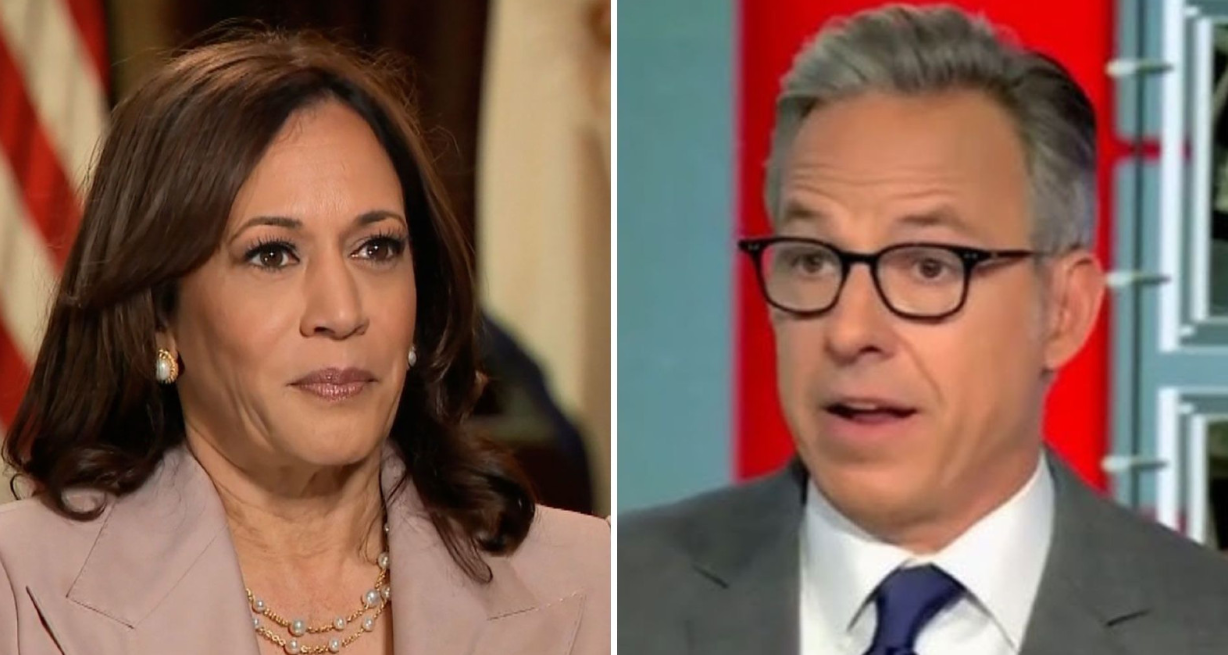In a recent interview on CNN, Governor Tim Walz was pressed by anchor Jake Tapper on several sensitive topics. Tapper questioned whether the Democratic Party should acknowledge President Joe Biden’s unsuitability for a second term, suggesting that the failure of his administration and electoral losses were indicative of a broader miscalculation by party leadership. In addition, Tapper scrutinized Vice President Kamala Harris’s comment—her “I’m not here to say I told you so” remark—probing the implications of that statement in relation to her performance during the 2024 campaign. Governor Walz’s responses—acknowledging accountability for the electoral outcome while attributing pressure on Biden’s decision to drop out to party leaders like Nancy Pelosi—set the stage for an in-depth discussion about the party’s positioning, electoral strategy, and overall messaging in the current political environment.
II. The Debate Over President Biden’s Re-election Viability
A. A Question of Fitness for Office
Tapper opened his questioning by asking Governor Walz whether Democrats should concede that President Biden was not well-suited for another term. The CNN host suggested that this might have been a “major mistake” on the part of the party. According to Tapper’s line of inquiry, the message that President Biden was incapable of handling the demands of the presidency was evident to voters through numerous polls that consistently raised concerns over his age and cognitive abilities. Although Walz maintained that Biden ultimately made the decision to drop out of the race, he also noted that he was pushed in that direction by influential party leaders, including former Speaker Nancy Pelosi, adding nuance to the discussion of where responsibility lies for the administration’s perceived shortcomings.
From a strategic standpoint, this discussion touches on the broader concern among some Democrats that the party’s messaging failed to sufficiently highlight Biden’s limitations. Critics argue that by persisting with the notion that he was capable of serving another term, party leaders set themselves up for an electoral debacle. Tapper’s inquiry underscores a significant internal debate: Should party leaders openly acknowledge shortcomings in their candidate’s ability to lead, even at the risk of undermining confidence in the party’s direction, or should they continue to support a candidate despite mounting evidence that the public might have been right to reject his bid for re-election?
B. Accountability and Self-Criticism in the Democratic Party
In his interview, Governor Walz acknowledged that the loss to President Donald Trump was not solely the product of external factors, but also reflected shortcomings within the Democratic Party’s strategy. He admitted that there was a need for significant soul-searching, particularly in addressing why the party maintained the belief that Biden was the right candidate despite what some polls and public sentiment suggested. Walz pointed out that the challenge was partly structural, questioning how Democrats could ignore signals from repeated polls that indicated widespread doubt about Biden’s fitness for office.
This introspection is important because it forces a re-evaluation of internal messaging and the criteria used to select and support political candidates. Whether or not one agrees with Tapper’s interpretation, the conversation reveals a tension between optimism within the party and the stark reality of voter sentiment. The issue goes beyond Biden’s personal qualities and is emblematic of a larger debate about whether party leadership is in tune with the electorate’s concerns. The critique suggests that a lack of self-criticism may have cost the Democrats dearly in terms of votes, and that an honest reckoning might be necessary to prevent similar outcomes in the future.
III. Vice President Harris’s ‘Told You So’ Comment
A. The Controversial Moment on Stage
During a recent speech at an event in California, Vice President Kamala Harris made a remark that quickly became a flashpoint for criticism. While addressing the audience, she stated, “I’m not here to say I told you so.” Tapper pressed Governor Walz for his interpretation of Harris’s comment. The anchor questioned whether that statement was meant to serve as a subtle rebuke to voters or political opponents, especially since many observers noted that during the campaign, Harris had tried to imply that she had warned the American people about certain mistakes but that her warnings had gone unheeded.
B. Examining the Implications
Tapper’s questions suggested that Harris’s remark was not received as a benign statement but rather as a pointed indication that she had previously cautioned voters about the state of affairs—warnings that she claims, in retrospect, were ignored. He argued that the comment, delivered in a seemingly dismissive tone, implied that the public had missed an obvious message, one that could have altered the course of the campaign if it had been communicated more effectively.
Governor Walz acknowledged his role in the campaign and indicated that while he felt responsibility for the loss, he also maintained that Harris had indeed attempted to alert voters to specific threats, notably those associated with the policies of former President Donald Trump. Nonetheless, Tapper pressed on the issue, questioning whether Harris’s communication was compelling enough to influence voter behavior. Critics argue that while Harris may have been trying to send a message about her concerns, her delivery—understated and lacking in the force required to win decisive support—failed to resonate with the broader electorate.
C. A Broader Debate on Messaging and Political Accountability
The discussion around Harris’s “I’m not here to say I told you so” remark touches on larger themes about how public figures use language to assume moral authority. While some supporters of Harris argue that her comment reflects a measured, dignified acknowledgment of the political realities without resorting to self-aggrandizement, critics see it as lacking the strength needed in a period of intense polarization. Moreover, the remark has ignited debate over whether vocal criticism of candidates is an acceptable part of political discourse or if it merely exacerbates divisions and undermines public trust in governmental institutions.
https://twitter.com/i/status/1317821677481459712









